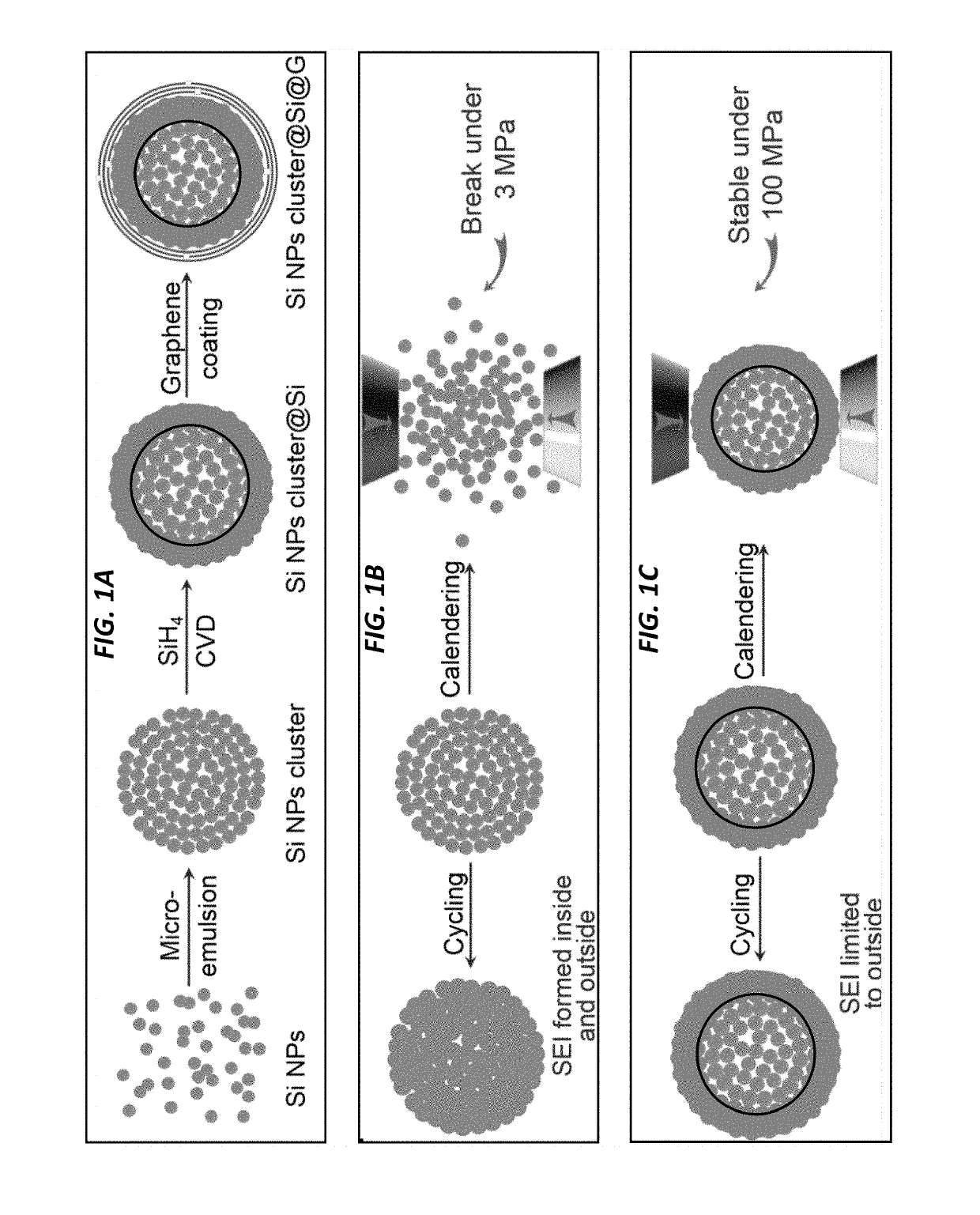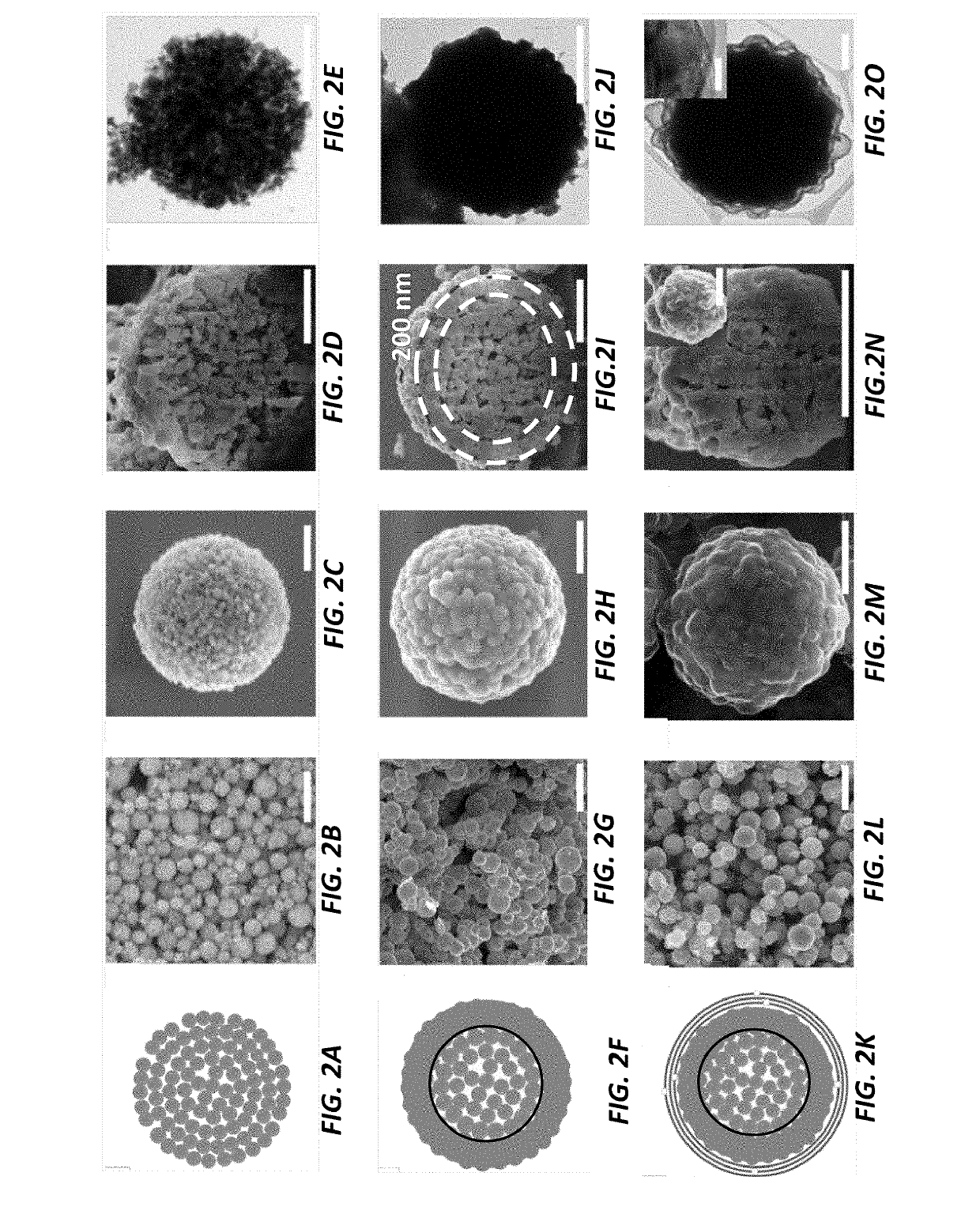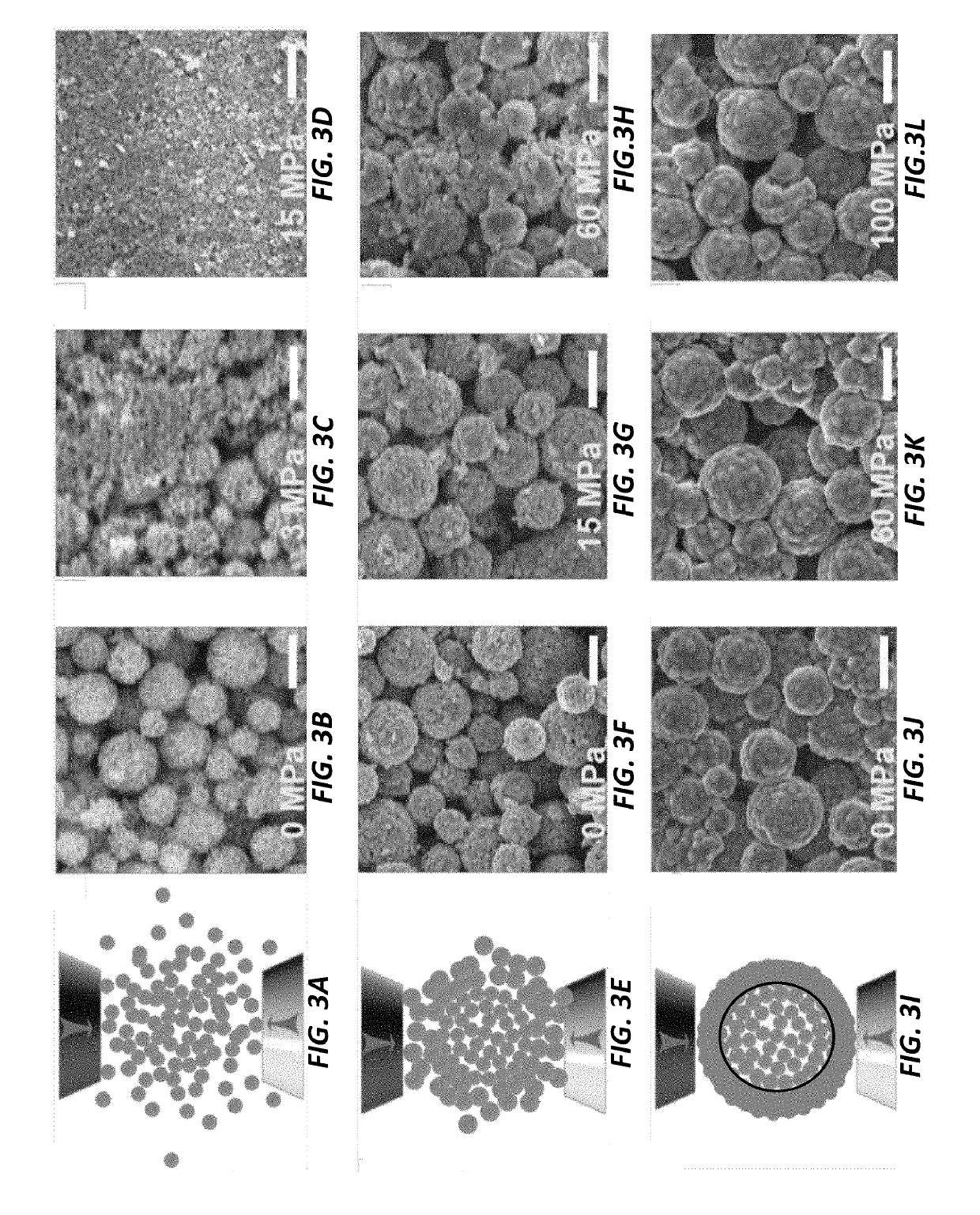Silicon sealing for high performance battery anode materials
a high-performance, battery anode technology, applied in the field of grapheneencapsulated silicon shellprotected silicon hollow structure battery electrodes, can solve the problems of poor coulombic efficiency, new challenges, and excessive surface area
- Summary
- Abstract
- Description
- Claims
- Application Information
AI Technical Summary
Benefits of technology
Problems solved by technology
Method used
Image
Examples
Embodiment Construction
[0025]To address the needs in the art, a battery electrode material is provided that includes a porous silicon microstructure precursor, a silicon shell coating deposited on the silicon microstructure precursor, and a graphene coating deposited on said silicon shell coating, where the graphene coating encapsulates the silicon shell coating forming a graphene-encapsulated silicon-shell-protected porous silicon microstructure precursor battery electrode. According to one embodiment, a pressure-resistant silicon hollow structure is provided by depositing silicon onto the silicon porous structure (precursor). The silicon shell significantly improves the mechanical stability, while the porous inner structure provides void space to overcome the volume expansion during the cycling. Such hollow structure can resist a high pressure and maintain well after calendering process. In addition, the silicon shell also decreases the surface area and thus greatly increases the initial Coulombic effic...
PUM
| Property | Measurement | Unit |
|---|---|---|
| mechanical pressure | aaaaa | aaaaa |
| pressure-resistant | aaaaa | aaaaa |
| Coulombic efficiency | aaaaa | aaaaa |
Abstract
Description
Claims
Application Information
 Login to View More
Login to View More - R&D
- Intellectual Property
- Life Sciences
- Materials
- Tech Scout
- Unparalleled Data Quality
- Higher Quality Content
- 60% Fewer Hallucinations
Browse by: Latest US Patents, China's latest patents, Technical Efficacy Thesaurus, Application Domain, Technology Topic, Popular Technical Reports.
© 2025 PatSnap. All rights reserved.Legal|Privacy policy|Modern Slavery Act Transparency Statement|Sitemap|About US| Contact US: help@patsnap.com



